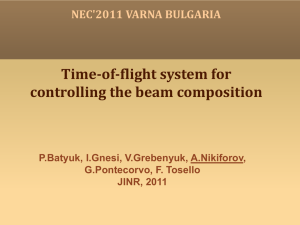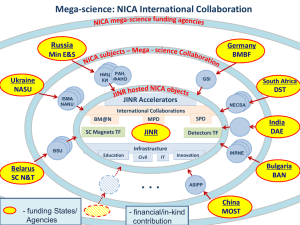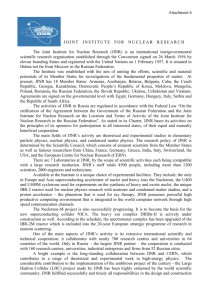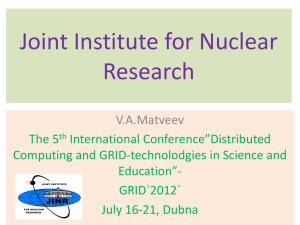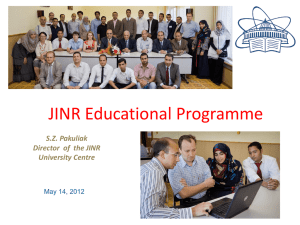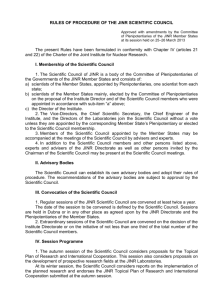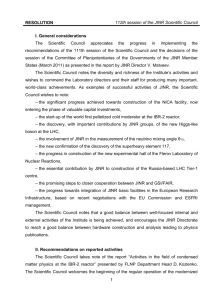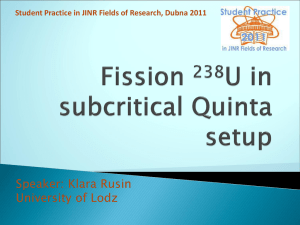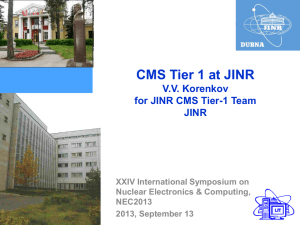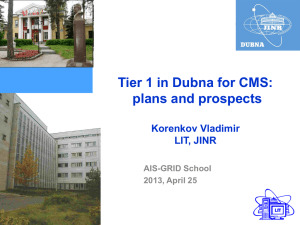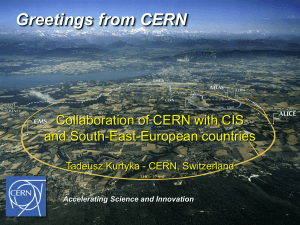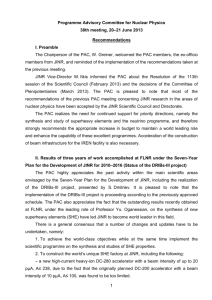Ref: - IN2P3
advertisement
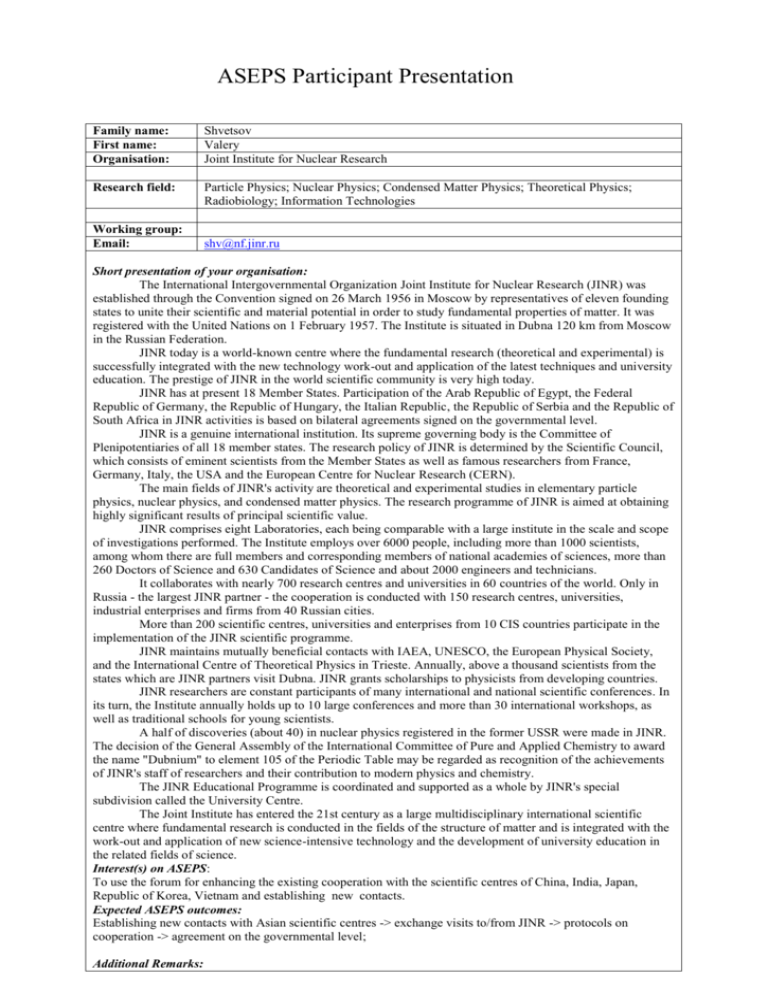
ASEPS Participant Presentation Family name: First name: Organisation: Shvetsov Valery Joint Institute for Nuclear Research Research field: Particle Physics; Nuclear Physics; Condensed Matter Physics; Theoretical Physics; Radiobiology; Information Technologies Working group: Email: shv@nf.jinr.ru Short presentation of your organisation: The International Intergovernmental Organization Joint Institute for Nuclear Research (JINR) was established through the Convention signed on 26 March 1956 in Moscow by representatives of eleven founding states to unite their scientific and material potential in order to study fundamental properties of matter. It was registered with the United Nations on 1 February 1957. The Institute is situated in Dubna 120 km from Moscow in the Russian Federation. JINR today is a world-known centre where the fundamental research (theoretical and experimental) is successfully integrated with the new technology work-out and application of the latest techniques and university education. The prestige of JINR in the world scientific community is very high today. JINR has at present 18 Member States. Participation of the Arab Republic of Egypt, the Federal Republic of Germany, the Republic of Hungary, the Italian Republic, the Republic of Serbia and the Republic of South Africa in JINR activities is based on bilateral agreements signed on the governmental level. JINR is a genuine international institution. Its supreme governing body is the Committee of Plenipotentiaries of all 18 member states. The research policy of JINR is determined by the Scientific Council, which consists of eminent scientists from the Member States as well as famous researchers from France, Germany, Italy, the USA and the European Centre for Nuclear Research (CERN). The main fields of JINR's activity are theoretical and experimental studies in elementary particle physics, nuclear physics, and condensed matter physics. The research programme of JINR is aimed at obtaining highly significant results of principal scientific value. JINR comprises eight Laboratories, each being comparable with a large institute in the scale and scope of investigations performed. The Institute employs over 6000 people, including more than 1000 scientists, among whom there are full members and corresponding members of national academies of sciences, more than 260 Doctors of Science and 630 Candidates of Science and about 2000 engineers and technicians. It collaborates with nearly 700 research centres and universities in 60 countries of the world. Only in Russia - the largest JINR partner - the cooperation is conducted with 150 research centres, universities, industrial enterprises and firms from 40 Russian cities. More than 200 scientific centres, universities and enterprises from 10 CIS countries participate in the implementation of the JINR scientific programme. JINR maintains mutually beneficial contacts with IAEA, UNESCO, the European Physical Society, and the International Centre of Theoretical Physics in Trieste. Annually, above a thousand scientists from the states which are JINR partners visit Dubna. JINR grants scholarships to physicists from developing countries. JINR researchers are constant participants of many international and national scientific conferences. In its turn, the Institute annually holds up to 10 large conferences and more than 30 international workshops, as well as traditional schools for young scientists. A half of discoveries (about 40) in nuclear physics registered in the former USSR were made in JINR. The decision of the General Assembly of the International Committee of Pure and Applied Chemistry to award the name "Dubnium" to element 105 of the Periodic Table may be regarded as recognition of the achievements of JINR's staff of researchers and their contribution to modern physics and chemistry. The JINR Educational Programme is coordinated and supported as a whole by JINR's special subdivision called the University Centre. The Joint Institute has entered the 21st century as a large multidisciplinary international scientific centre where fundamental research is conducted in the fields of the structure of matter and is integrated with the work-out and application of new science-intensive technology and the development of university education in the related fields of science. Interest(s) on ASEPS: To use the forum for enhancing the existing cooperation with the scientific centres of China, India, Japan, Republic of Korea, Vietnam and establishing new contacts. Expected ASEPS outcomes: Establishing new contacts with Asian scientific centres -> exchange visits to/from JINR -> protocols on cooperation -> agreement on the governmental level; Additional Remarks:
